Search Results for: exoplanet
Skip to resultsCan’t find what you’re looking for? Visit our FAQ page.
343 results for: exoplanet
-
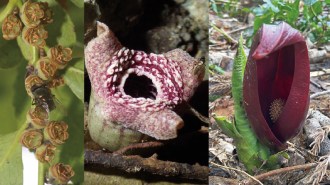 Plants
PlantsPutrid plants can reek of hot rotting flesh with one evolutionary trick
Some stinky plants independently evolved an enzyme to take the same molecule behind our bad breath and turn it into the smell of rotting flesh.
-
 Physics
PhysicsA weird ice that may form on alien planets has finally been observed
High-pressure experiments generated the first direct observation of plastic ice, which has qualities of both crystalline ice and liquid water.
By Nikk Ogasa -
 Space
SpaceThe nearest single star to Earth has four small planets
Last year, astronomers announced that a planet orbits Barnard’s star. Now, researchers have confirmed the existence of three more.
-
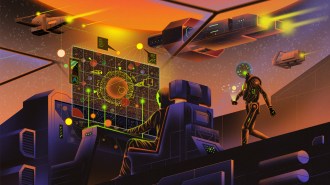 Space
Space‘Star Wars’ holds clues to making speedier spacecraft in the real world
Controlled fusion, solar sails or ion engines could someday help spaceships travel between star systems.
-
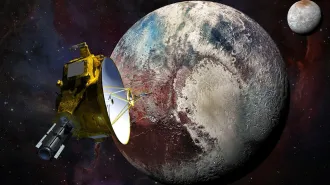 Planetary Science
Planetary ScienceNew Horizons visited Pluto 10 years ago. We’re still learning from it
Over the past decade, researchers have been puzzling through Pluto’s mysteries. Meanwhile, the New Horizons probe heads for interstellar space.
-
 Space
SpaceHow a Harvard maverick forever changed our concept of the stars
At just 25, Cecilia Payne-Gaposchkin applied quantum physics to a treasure trove of astronomical observations to show that stars are mostly hydrogen and helium.
By Elise Cutts -
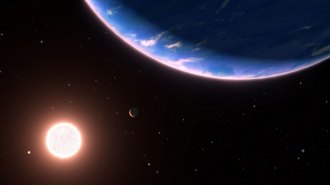 Space
SpaceJWST spots the first known ‘steam world’
Astronomers have found a world shrouded in an atmosphere of water vapor, orbiting a star 100 light-years away.
-
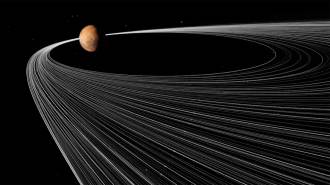 Planetary Science
Planetary ScienceMars’ potato-shaped moons could be the remains of a shredded asteroid
Phobos and Deimos could have formed from asteroid debris, a new study suggests. An upcoming sample return mission will help test the idea.
-
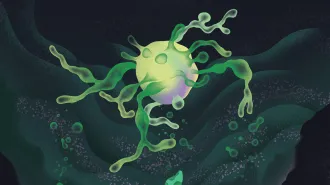 Life
LifeHow these strange cells may explain the origin of complex life
The tiny pantheon known as the Asgard archaea bear traits that hint at how plants, animals and fungi emerged on Earth.
-
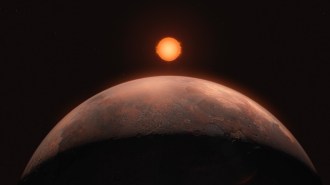 Astronomy
AstronomyBarnard’s star has at least one planet orbiting it after all
After decades of searching, a telltale gravitational wobble points to an exoplanet orbiting the nearby red dwarf every 3.15 days.
By Sid Perkins -
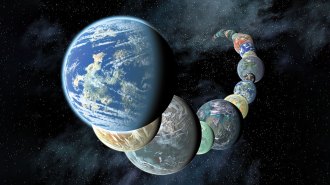 Space
SpaceNASA’s James Webb Space Telescope could help solve these 5 exoplanet puzzles
A lot of people are focused on signs of alien life, but the space telescope will have a lot to say about exoplanet geology and formation.
By Elise Cutts -
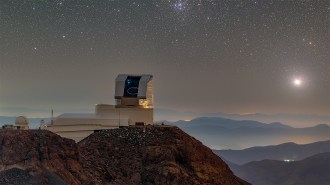 Space
SpaceThe Vera Rubin Observatory is ready to revolutionize astronomy
Sporting the world’s largest digital camera, the new telescope is poised to help solve some of the universe’s biggest mysteries.